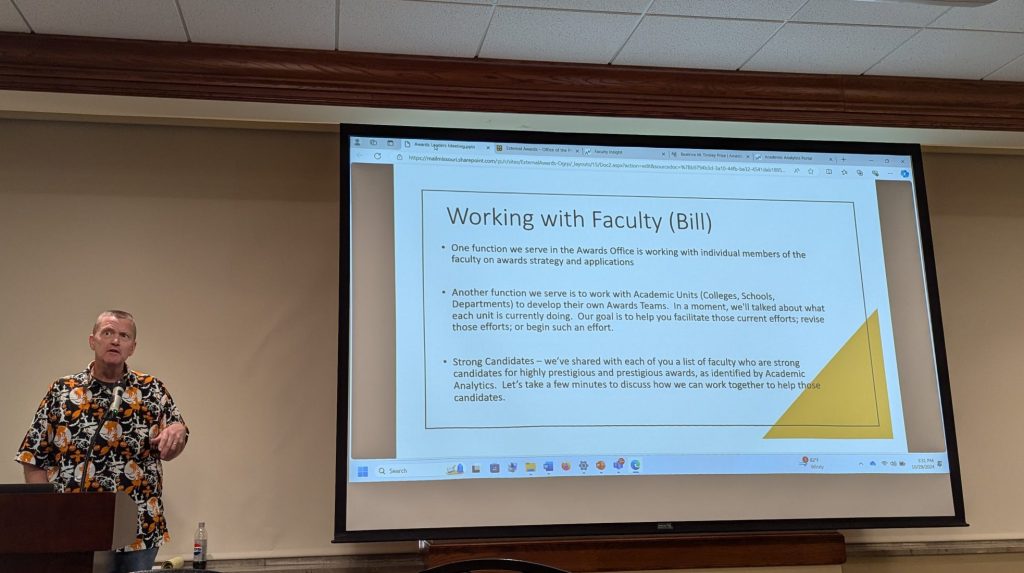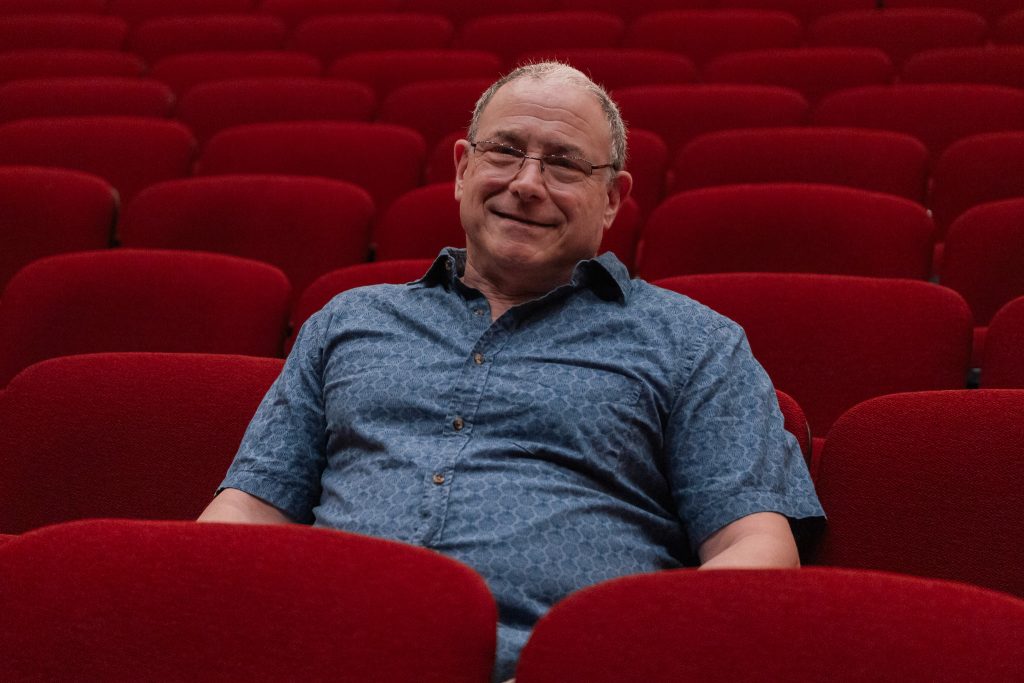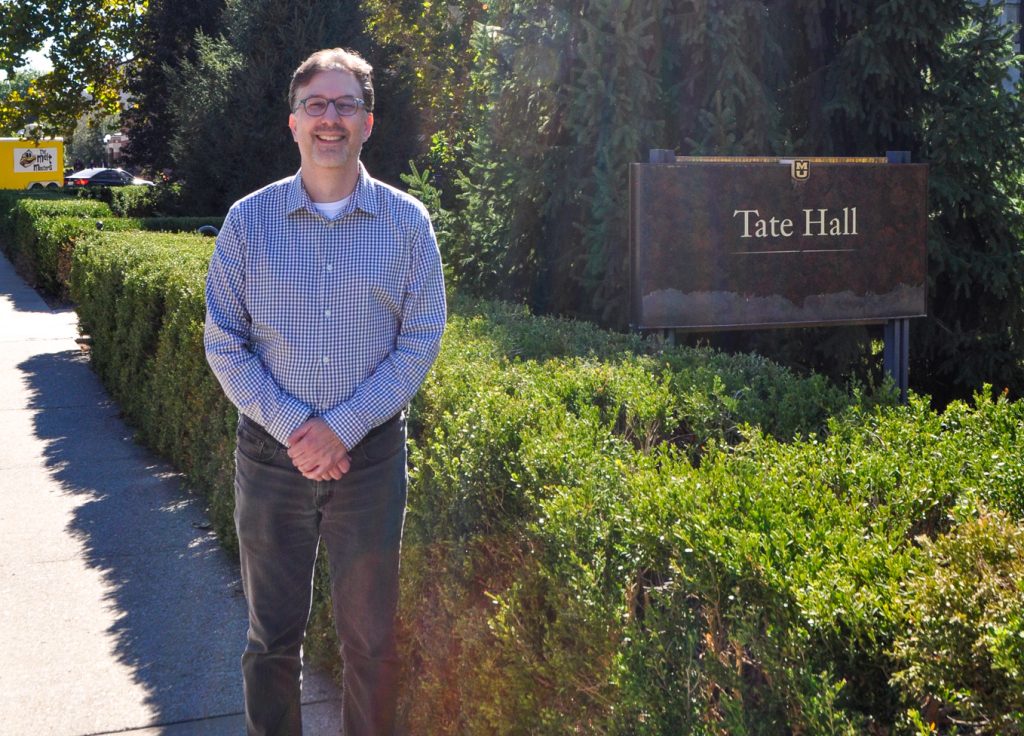Published on
Updated on

The Office of the Provost’s external awards team works with faculty and staff and hears many reasons why applying for external awards is challenging to balance with other workload and responsibilities. We would like to dispel some of these myths and provide examples of how our team can support you.
Myth #1: There’s just way too many awards/I don’t know where to begin!
While the idea of applying for some external awards may be daunting, the Provost’s office has an external awards team available to help academic units strategize in how to create an awards culture and we can help support faculty throughout the application process. In October, the external awards team conducted a session for academic leaders on how to create an infrastructure to support faculty members in their units for applying for prestigious and highly prestigious awards (as designated by the National Research Council).
David Crespy, Fulbright Liaison, and Bill Horner, a faculty fellow for external awards in the Provost’s office, let attendees know they are available for assisting schools and colleges in developing an awards strategy timeline and helping faculty in their applications for awards. Jackie Beary, external awards project coordinator, provides assistance in searching for awards in Faculty Insights and can help drill down all the data to narrow down awards in a specific area.
By using Academic Analytics as an awards database, we can quickly narrow your search to a specific field, research topic, or association. It also provides tools that help match awards to a scholar’s research or interests. The Suitability Index can highlight individuals well suited for awards previously won by scholars with similar academic work.
“The Suitability Index is a calculation that compares a scholar’s characteristics to those of previous recipients of an award,” says Crespy, “The Suitability Index is based on a number of factors, including: academic age at the time of receiving the award, comparative benchmarks, institution and academic unit affiliations, and previous co-authorship.”
The external awards team can provide support anywhere in the process from finding awards to assisting in the nomination or application process and helping to communicate the good news if an application is successful.
We have a library of prerecorded webinars on our external awards website featuring specific awards application tips and advice from chairs on Building a Department Awards Culture from 2023. You can also watch a short tutorial video by Bill Horner on how to use Faculty Insights.

Myth #2: Applying for prestigious/highly prestigious awards is waste of time, especially if you don’t get it!
Stephen Karian, professor in the Department of English, is a two-time recipient of the National Endowment for the Humanities (NEH) Fellowship, a highly prestigious award, but a four-time applicant. He says that failure is an inevitable part of the process for grants and awards; however, applying should not be considered a waste of time.
His advice following an unsuccessful application is to immediately ask for the external reviewers’ comments on your application and use those to help you revise for the next application cycle. Only about 7% of applicants are awarded an NEH Fellowship, so use the time to improve your project and make the case for you being the right scholar for the NEH to invest their money in.
David Crespy, Stephen Karian, and Kate Neckermann, Director of the Arts and Science Office of Research and Creative Activities, recently held a webinar with an informative discussion about the application process for the NEH fellowship. The guest speaker was Dr. Geoff Burrows, senior program officer in the NEH Division of Research Programs.

Myth #3: It’s too early in my career to start thinking about prestigious/highly prestigious awards.
Karian received two NEH Fellowships in 2011-12 and 2022-23 and a NEH Summer Stipend in 2003. Before he got to this point, though, he applied for internal campus grants, such as the Research Council Grants, MU Arts and Humanities Grants, and College of Arts & Science Research Leave.
Receiving these smaller awards will help hone your skills and confidence in writing applications. He believes by the time you get to the preparation stage for an application for an award such as the NEH Fellowship, you should be able to clearly explain the importance of the project and why it should be funded.
“Every application gave me a chance to understand my project better, understand how to write about it better and how to present it to a potential, granting agency,” said Karian.
Dennis Trout, professor of Ancient Mediterranean Studies, was awarded the highly prestigious American Academy in Rome prize in 2024 but, before that, was a fellow at the National Humanities Center (NHC) in 2019-20 and received a NEH fellowship in 2003.
“Awards beget awards as well as providing the time and mental space to complete large-scale projects,” said Trout.
He would encourage anyone thinking of applying to the NHC next year who has a viable project should go ahead and do it.
“Certainly what I was able to accomplish as a holder of various fellowships over time was instrumental to whatever success I can claim as a scholar and has been a key piece of my career trajectory,” he said.
Even if you don’t feel you’re ready, it helps to go through the application process and learn how to make an effective argument for your project to the peer reviewers, who are the audience reading your narrative.